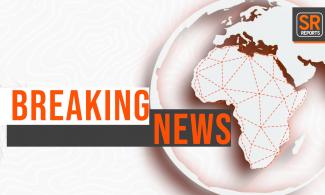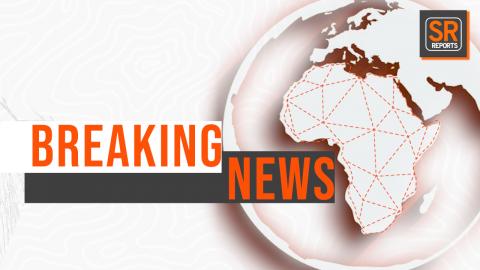
The approval followed the consideration of a report by the Committee on Local and Foreign Debts.
The Nigerian Senate on Wednesday approved the sum of $5,803,364,553.50 (about N2.4 Trillion) and a grant component of $10million under the 2018-2020 External Borrowing (Rolling) plan.
The approval followed the consideration of a report by the Committee on Local and Foreign Debts.

Chairman of the Committee, Senator Clifford Ordia, in his presentation said the $2,300,000,000 would be sourced from the World Bank, $2,300,000,000 from the German Consortium, $90,000,000 from the Islamic Development, $786,382,967 from the China Exim Bank, $276,981,586.50 from the Bank of China, and $50,000,000 from the International Fund for Agricultural Development.
He recalled that President Muhammadu Buhari in a communication dated May 6, 2021, had requested the Senate to consider and approve the Federal Government 2018-2020 External Borrowing (Rolling) plan.
According to him, the 2018-2020 External Borrowing (Rolling) Plan contained a request for approval in the sum of $36,837,281,256 plus €910,000,000 and Grant Component of $10,000,000.
Ordia noted that a report was laid by his committee before the Senate in July 2021 recommending approval of the sum of $8,575,526,537 and €490,000,000.
He further recalled that the Senate at plenary in July 2021 approved financing for projects as recommended by the committee above whilst the committee continued further legislative action and consideration of the outstanding request.
He added that on September 15, 2021, the President of the Senate read another communication from the President containing an addendum to the 2018-2020 External Borrowing (Rolling) Plan in the sum of $4,054,476,863, €710,000,000 and grant component of $125,000, 000 for various projects and same was also referred to the committee for further legislative action.
Consequently, Ordia stated that a second report was laid by the Local and Foreign Debts Committee before the Senate in November 2021, recommending approval of the sum of $16,229,577,718, €1,020,000,000 and a grant component of $125,000,000.
In accordance with the recommendation of the committee, the Senate at plenary in November 2021 approved the sum as financing for projects as recommended by the panel.
He explained that the request for the approval of $5.8 billion was part of the mandate of the committee in respect of the 2018-2020 External Borrowing (Rolling) plan.
The Committee on Local and Foreign Debts in its observations noted the concerns of Nigerians about the level of sustainability and serviceability of the country’s borrowing within the last decade.
It nevertheless reiterated its stance on the need for a more proactive and broad based approach to revenue enhancement related issues, adding that, “there are noticeable improvements in the country’s revenues”.
The committee underscored the need for rapid infrastructural and human capital development.
It noted that the projects to be financed with the loan would have a great multiplier effect on stimulating economic growth through infrastructure development, job creation, poverty alleviation, health care and improvement of the nation’s security architecture.
The House of Representatives had on Tuesday approved the loan request ($5.8 billion -about N2.4 Trillion) and a grant of $10 million as requested by President Buhari.
The lawmakers, however, asked for transparency regarding the terms and conditions given by the funding agencies in giving out the loan, saying the details should be made available to the National Assembly.
Meanwhile, the Debt Management Office (DMO) had put Nigeria’s public debt at N38.005 trillion by the third quarter of 2021, between July 1 and September 30, 2021.
This DMO stated this on Tuesday in a press statement put on its website, titled ‘DMO publishes total public debt for Q3 2021.’
It said, “In line with its practice, the Debt Management Office has published Nigeria’s Total Public Debt as at September 30, 2021. The Data which includes the Total External and Domestic Debts of the Federal Government of Nigeria, thirty-six state governments and the Federal Capital Territory, shows that Nigeria’s Public Debt was N38.005tn or $92.626bn at the end of Q3 2021.”
It said the increase of N2.540 trillion in three months from June 30 to September 30, 2021 “was largely accounted for by the $4bn Eurobonds issued by the Government in September 2021”.
“The issuance of the USD4 billion Eurobonds has brought significant benefits to the economy by increasing the level of Nigeria’s External Reserves, thereby supporting the Naira Exchange Rate and providing the necessary capital to enable the Federal Government finance various projects in the Budget.
“The triple tranche $4bn Eurobond, issued in September 2021, was for the implementation of the New External Borrowing of $6.18bn in the 2021 Appropriation Act,” it said.